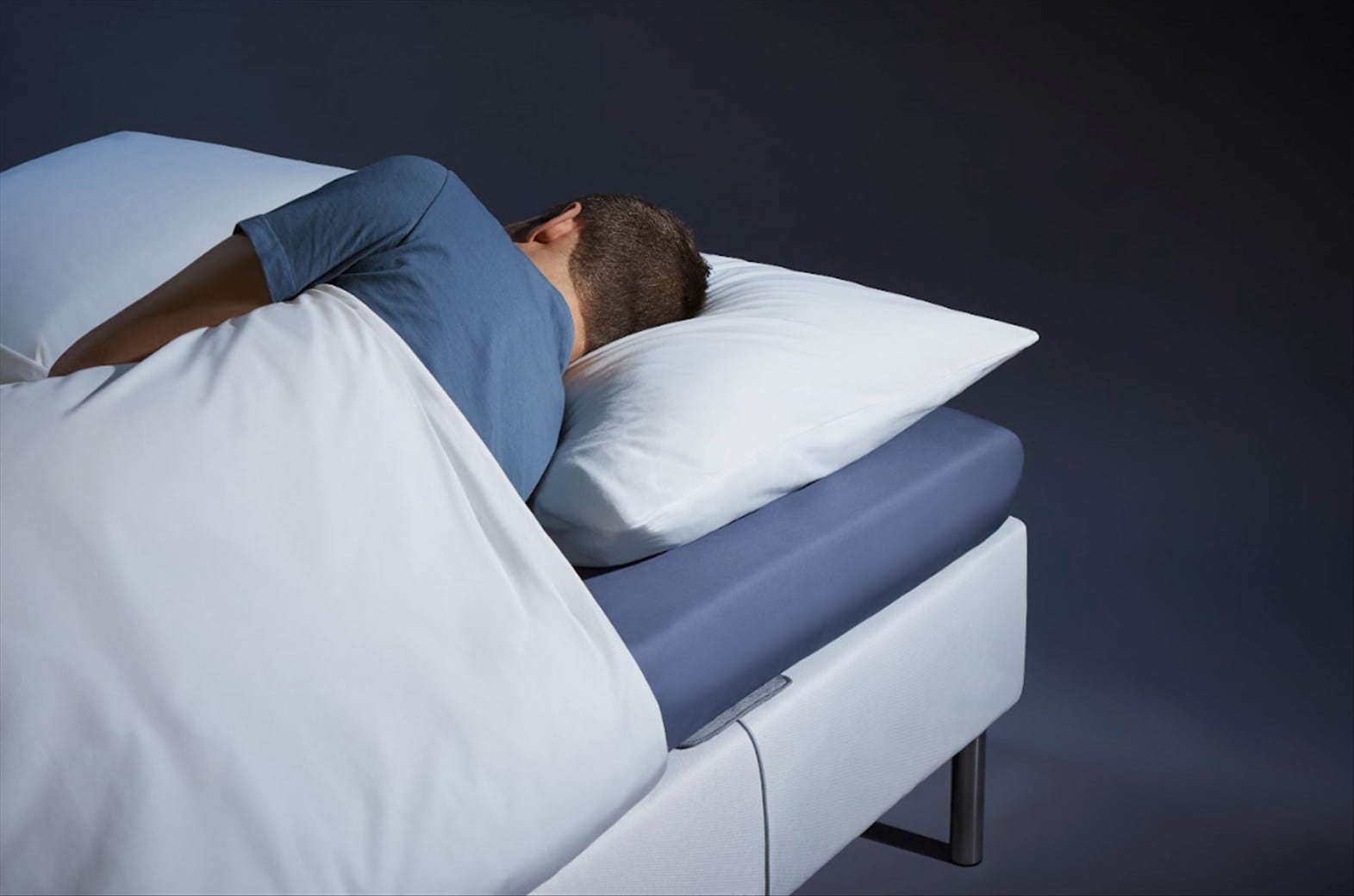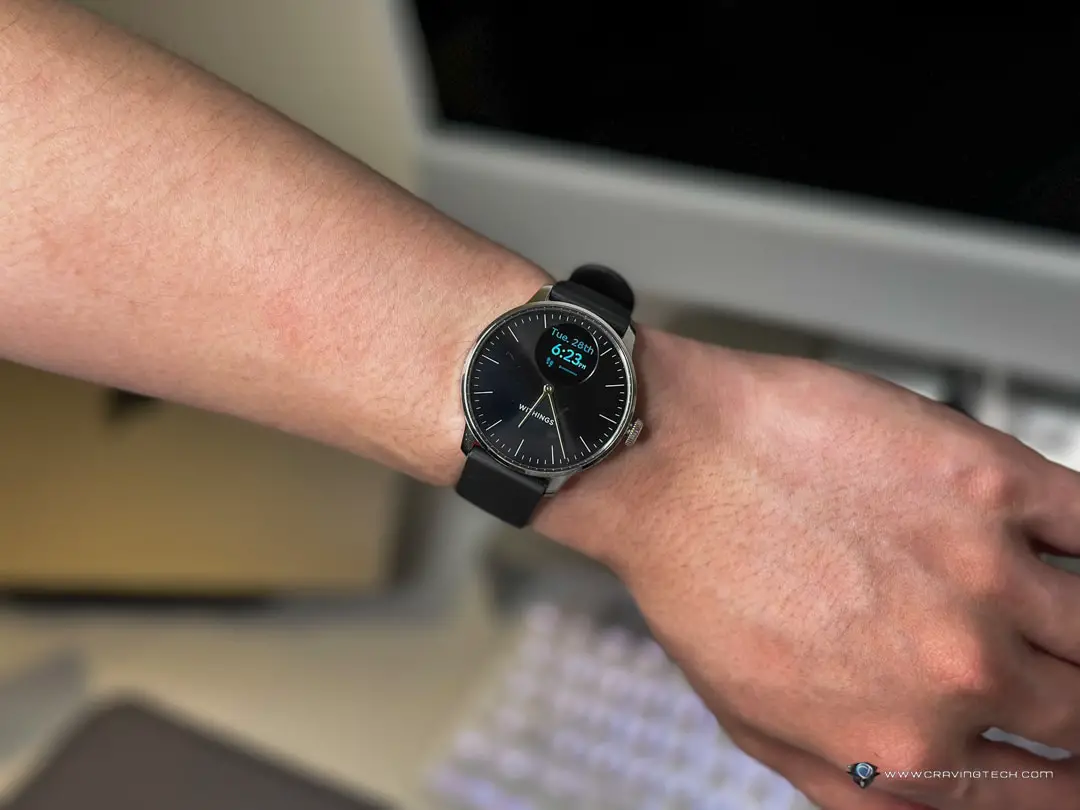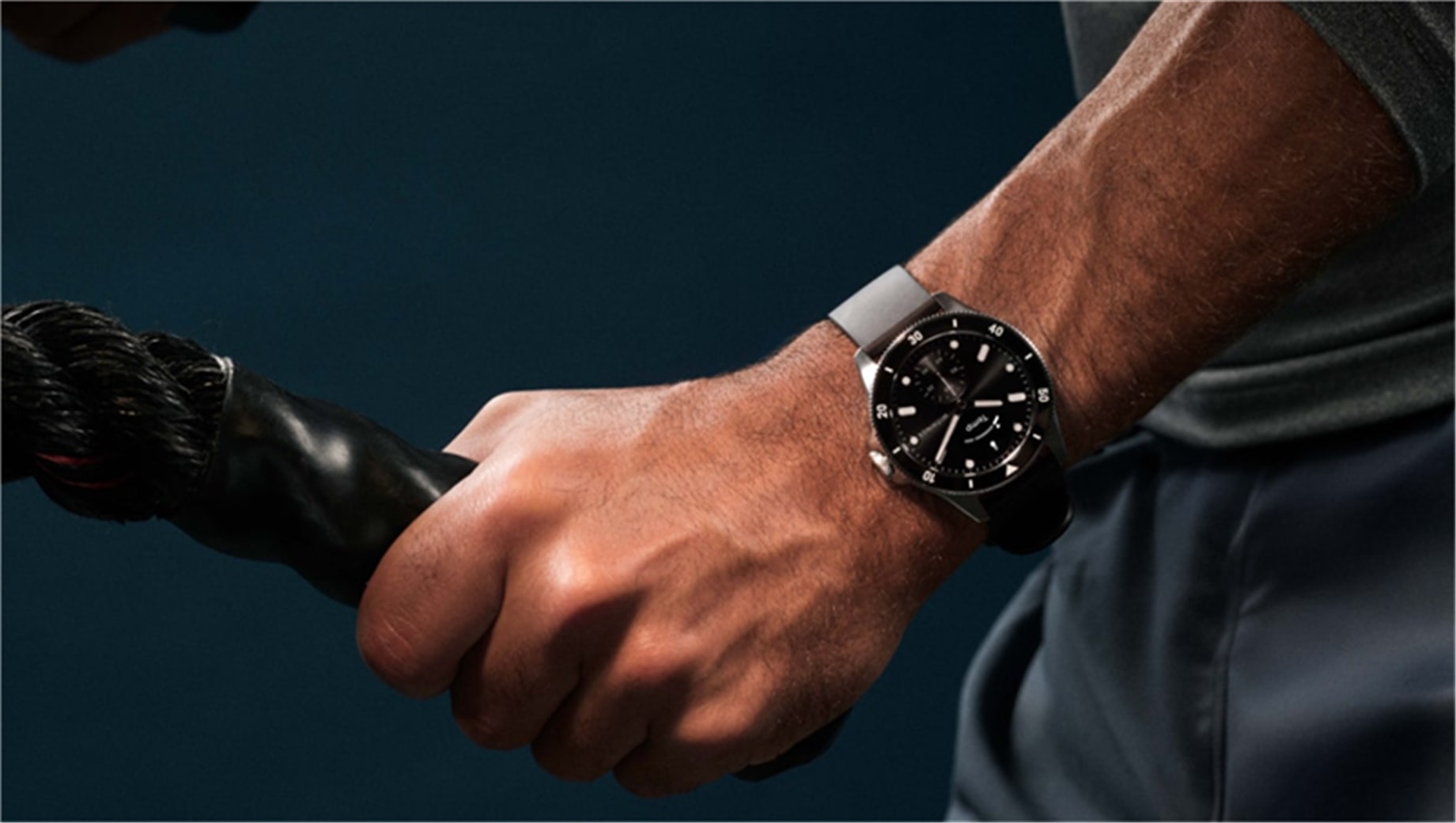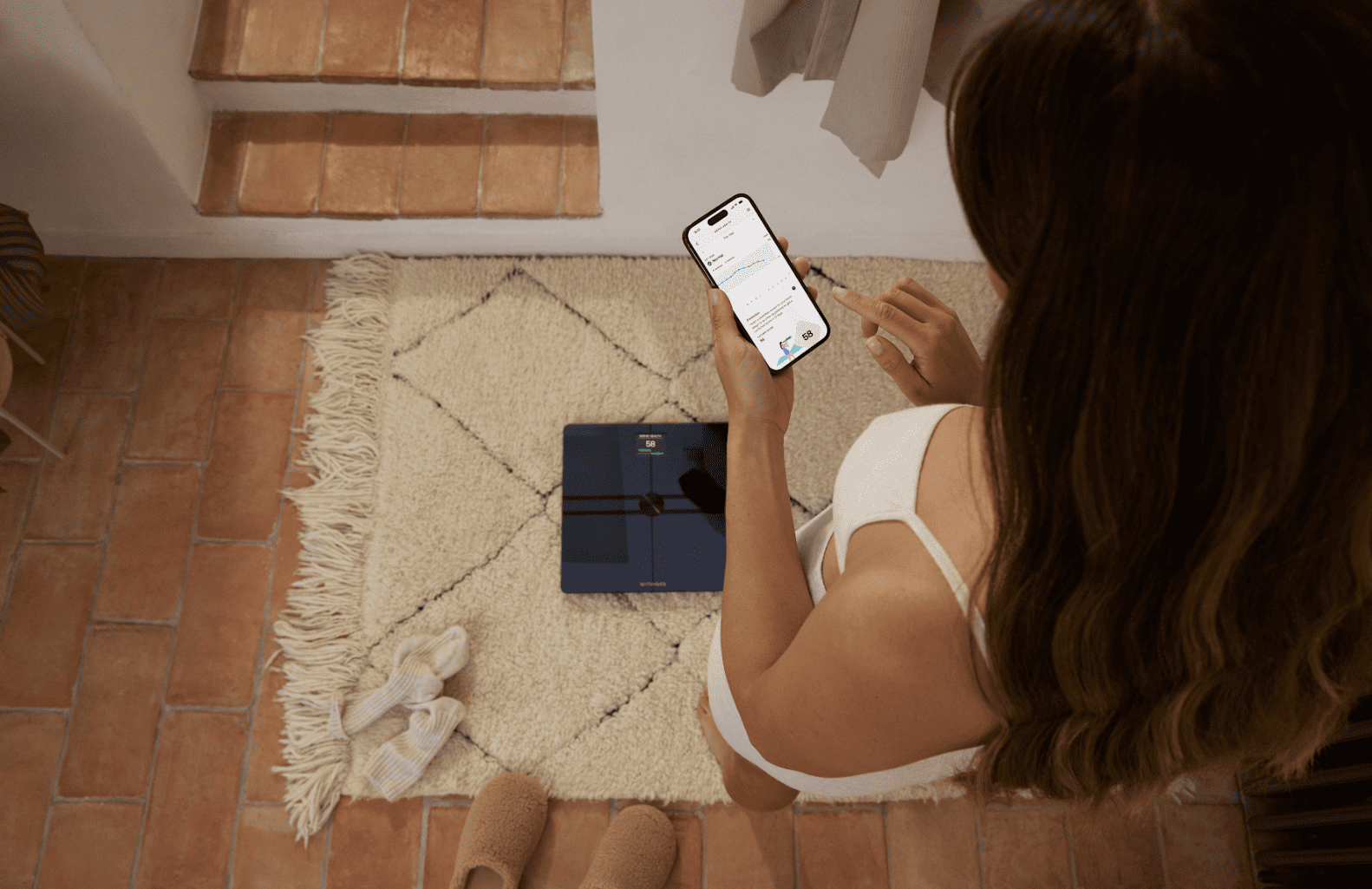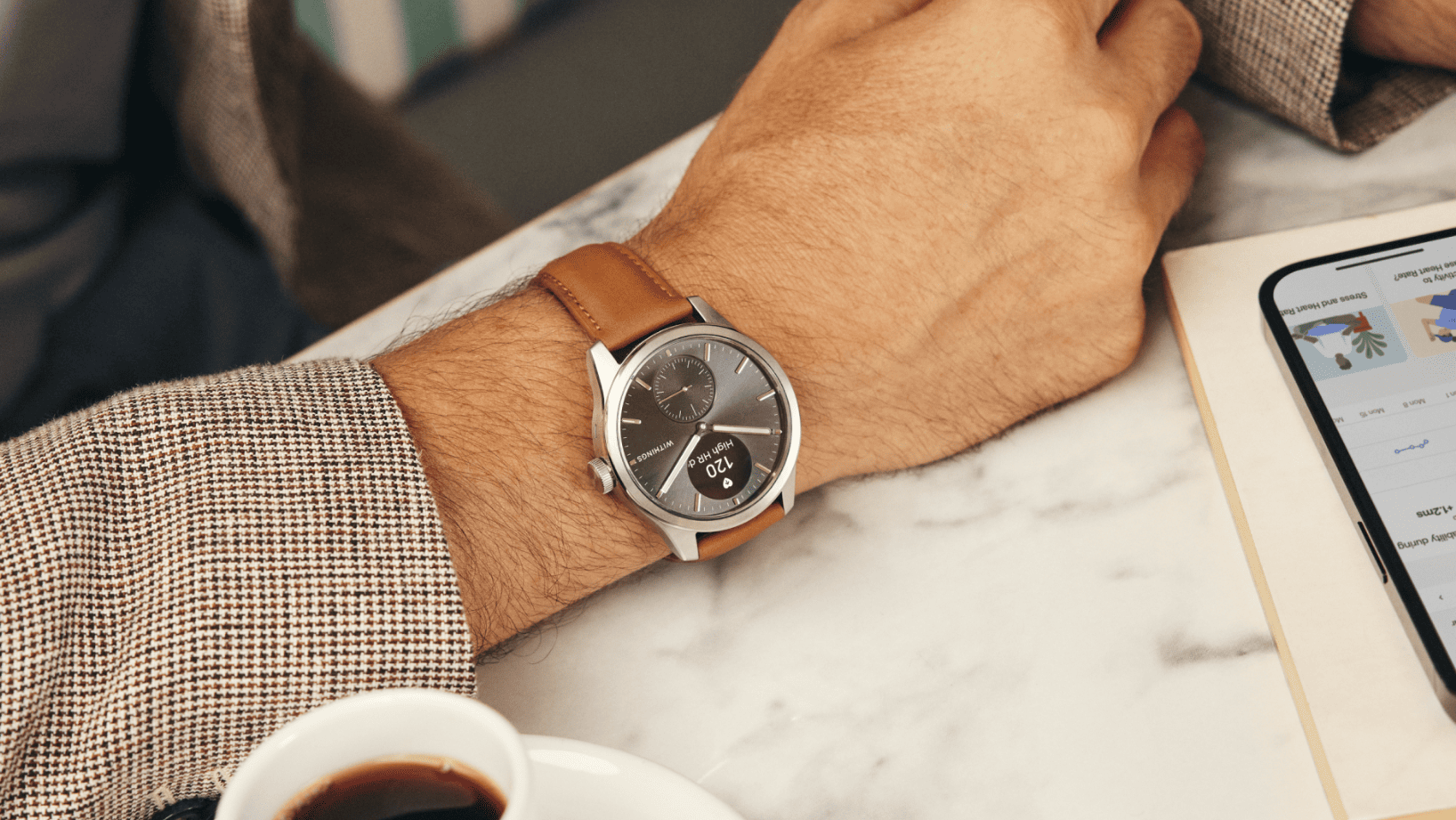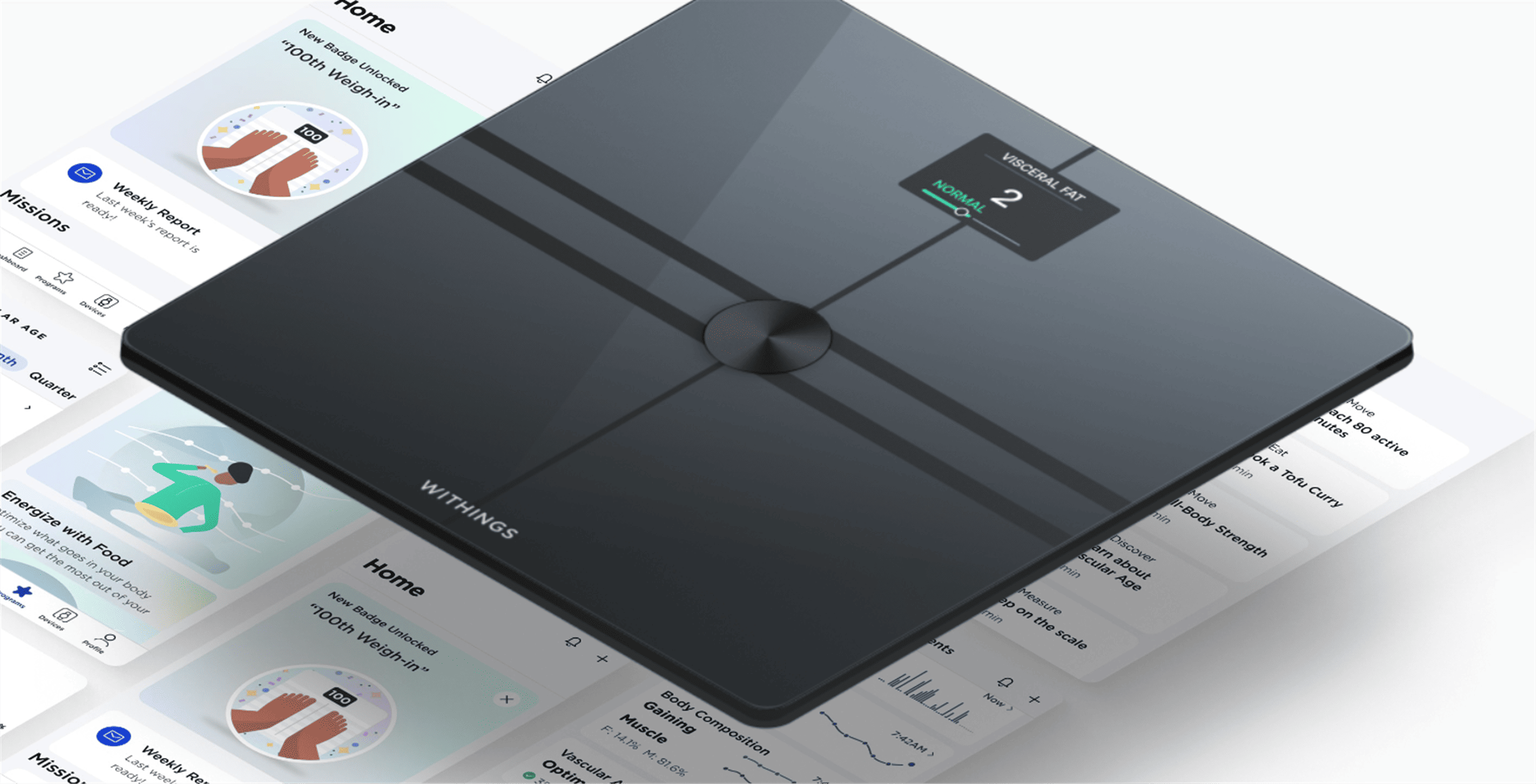
The Body Comp and Body Smart are the two newest premium smart scales released by Withings in 2023. The Body Comp is a complete body assessment scale available for $359.99 AUD which measures full body composition (including lean mass, body fat, water mass, and even visceral fat index), performs a cardiovascular assessment, as well as nerve health assessments. Unfortunately, these features are so far only available in Europe but they are pending TGA approval in Australia so there is no exact timeline yet.
Withings Body Comp is tailored to those who want more comprehensive monitoring of advanced metrics such as cardiovascular and nerve health. Unfortunately, as I said these two features are not available here in Australia. The Body Smart is cheaper and does enough of the measurements I think people want, including full body composition and especially visceral fat index. Therefore, at this point if I had to pick one, I would pick the Body Smart (review will be published on this one too).
A quick note before my review: as a medical student, I find myself being a bit more cautious in reviewing any product related to health monitoring, as I’m aware that health (and especially body weight) are quite emotionally charged areas of people’s lives, and I’ve seen the growing discussions about the potential harms of excessive health data that may be hard to interpret or utilise (If money was no object, should you run every medical test? – YouTube is a short, interesting video about this). The concern is that this could inadvertently induce health anxiety and lead to misguided health choices.
However, I did find that Withings is actually quite transparent on their website, as it contains extensive information on how their technology works, the parameters they measure, what the measurements mean, and even sources of potential biases. So, I must commend them in this regard.
Nevertheless, as a fair warning, based on my search on online databases, no empirical, independent research has yet assessed the reliability of this smart scale in measuring advanced metrics like vascular age and nerve health, or their implications on health outcomes. Therefore, it’s important to not solely rely on these results to guide your health choices, and instead use this as adjunct information while seeking advice from a health professional.
Withings Body Comp Review – Packaging and Setup
Withings Body Comp packaging comes with the scale, carpet feet (allowing the scales to be used on carpet), and instruction manuals.
Setting up the Body Comp was unfortunately not the most straightforward process for me. I downloaded the Withings App from the App store, which prompted me to turn on the scale, scan a QR code and then a 6-digit code displayed on the scale. However, after inputting the 6-digit code, the app was unable to immediately connect to the scale. I had to reboot the scale and refresh (and even reinstall) the app a few times before the scale was detected. In total this took about 35 minutes.
However, once connected, the in-app guide makes it a bit more straightforward to utilise both the scale and the app. You can set up your account by adding your name, height, weight (and of course you can choose to use metric or imperial scales for this), and your email, and you can use the scale straight away.
The scale also allows you to add up to 8 users, either under the same account or by creating separate accounts. My two family members found it quite easy to add themselves to the scale. The scale recognises the user based on their weight, and if multiple users have similar weights, the scale will display the corresponding users, and you can either lean towards the side of the scale with your name, or manually press the scale with your foot to select yourself. Fortunately, my 2 other family members have different weights, so I didn’t have to face this issue.
Withings Body Comp Review – Design
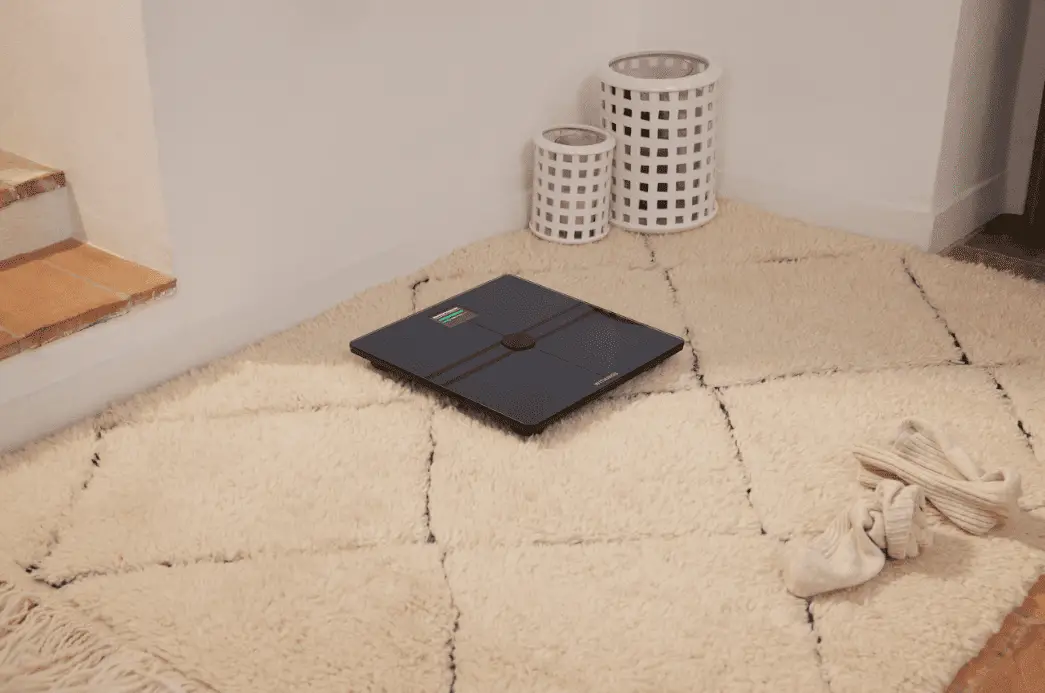
I love the design of both scales. The reflective glass surface and solid, hefty feel contribute to an elevated and premium aesthetic. The display screen is also decently bright, making it easily visible even when sunny. The Body Comp comes in black with a colour LCD screen.
Withings Body Comp Review – Features/Functions
Withings App
- The Withings App is required to use the scale, and it automatically tracks your weight and body composition measurements from your scale. This is a really convenient aspect of smart scales in general, but the comprehensiveness of the Withings Body Comp is their selling point.
- The app syncs reasonably fast with Wi-Fi. And while the user interface might be a tad confusing initially, it becomes more intuitive and is quite user friendly after the first week of use.
- The App also allows users to synchronise with other health apps such as Google Fit, Strava, Samsung Health, and MyFitnessPal, among others.
Weight
- Obviously, a scale should first and foremost be able to accurately measure your weight. Throughout my testing, I found that the scale measures weights accurately almost all of the time. The scale consistently produced the same results, with a minimal difference of +/- 0.1 kg. And comparing it with my old digital scale, they also consistently produced very similar results.
- The carpet feet is a valuable addition that provide flexibility by allowing you to place your scales on carpeted surfaces. I found that the difference in measurements between carpeted and flat surfaces was minimal, consistently falling within the range of +/- 0.1 kg.
- Unfortunately, in the past two weeks, I experienced two instances where inaccuracies did occur. In the first case, the scale misidentified me as my sister, who is 20kg lighter than me, and it therefore tracked my weight under her account. It was then unable to recognise her when she stepped on the scale, and she had to turn the scale on and off, refresh the app, and step on the scale a few more times before it corrected itself. Fortunately, this issue did not recur.
- In the second instance, I grew suspicious when I measured almost 2kg heavier one morning. Placing the scale in a slightly different spot and remeasuring gave the same result. I didn’t think I ate anything out of the ordinary the day before, and I followed the app’s advice to measure around the same time each day. So, I used my old digital scale to confirm, and found that I had actually lost some weight compared to the last time I measured.
- Apart from these two instances, however, the Body Comp has generally been accurate.
Body Composition Measurements
- Muscle mass, fat mass, water weight, bone mass
- The Body Comp cale utilises bioelectrical impedance analysis (BIA) to measure these metrics. This process involves sending a harmless, low-level electrical current through the body and measuring its impedance (resistance). Since different tissues (fat, muscle, bone, water) have different levels of electrical conductivity, the scale can estimate the amount of each tissue based on the resistance encountered.It is important to note that although convenient, BIA is not as accurate as DEXA scans at measuring body composition, and is affected by factors like hydration levels, skin temperature, age, massive obesity, and metal implants. However, BIAs are far more accessible than the medical-grade DEXA scans, making them useful in assessing trends over time, so long as you minimise the confounding factors that can affect your measurements.
- The Withings Website provides a more in-depth explanation of how this works.
- Visceral fat
- While gaining fat anywhere in the body is generally unwelcome, what many people may not realise is that not all fat distributions equally affect your health. Visceral fat is fat tissue that surrounds the centrally located internal organs like the liver, pancreas, and intestines. Unlike the subcutaneous fat located just beneath the skin, visceral fat is associated with more metabolic complications, as it creates a more inflammatory systemic state, which is linked to an increased risk of cardiovascular conditions (such as heart attacks and strokes), type 2 diabetes, and hypertension.
- The visceral fat index measured by the scale ranges from 0 to 20. A visceral fat from 0-5 is considered normal according to this scale. Regularly monitoring this index can be useful in encouraging regular exercise, as it can help reduce your visceral fat score.
- The Withings Website provides a bit more information on this.
Additionally, weight trends, current weather, and even air quality can be shown on the scale’s screen.
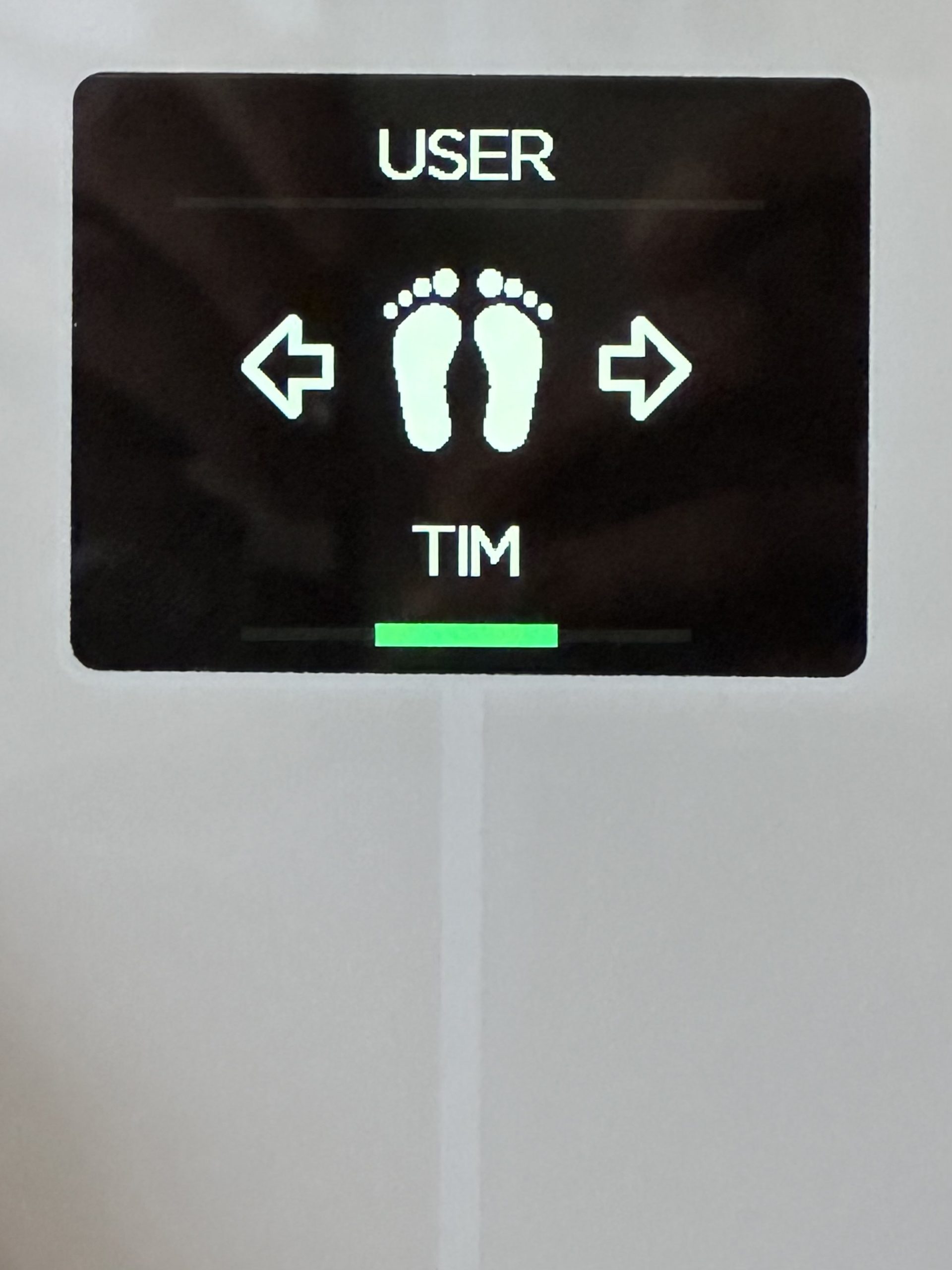
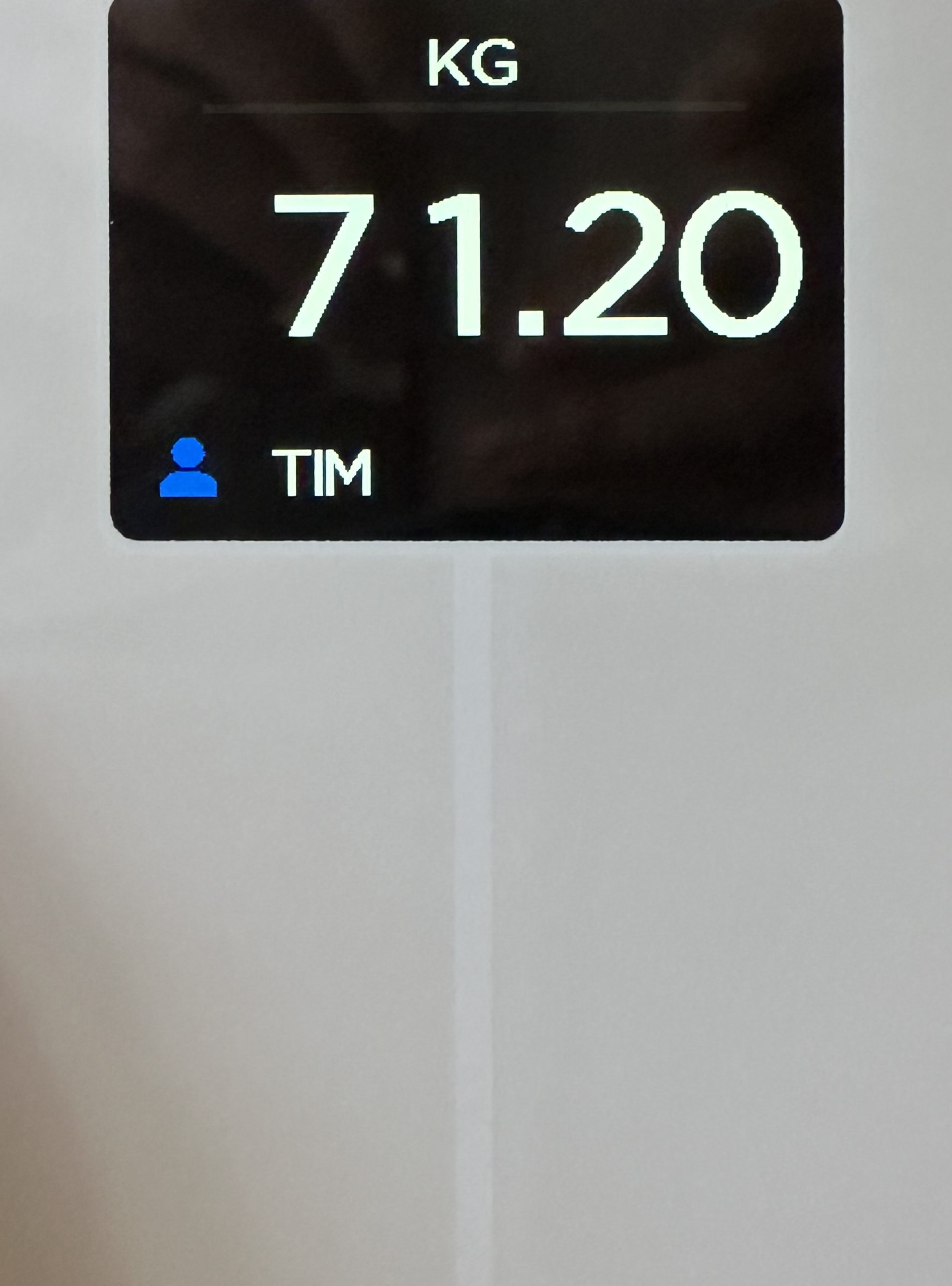
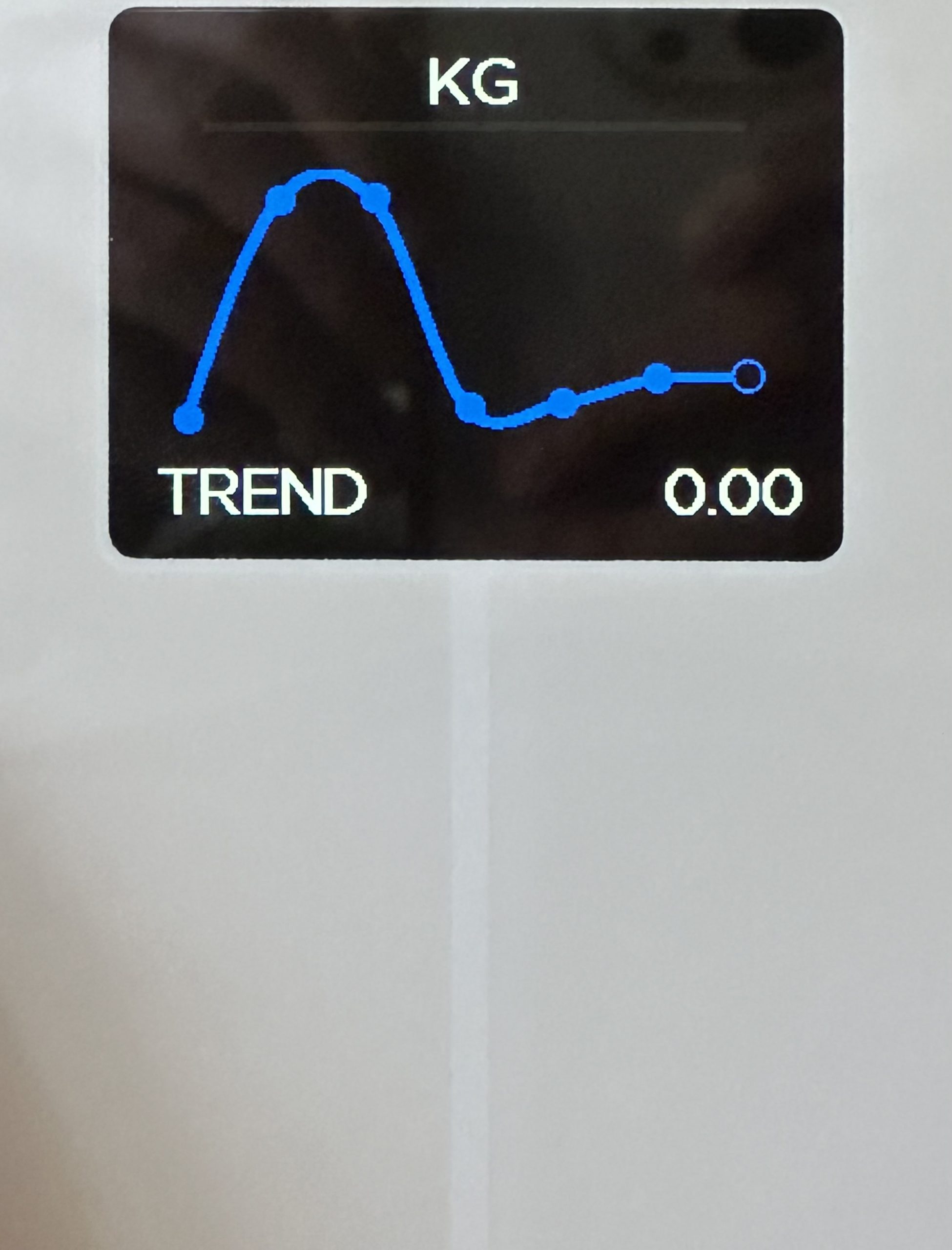
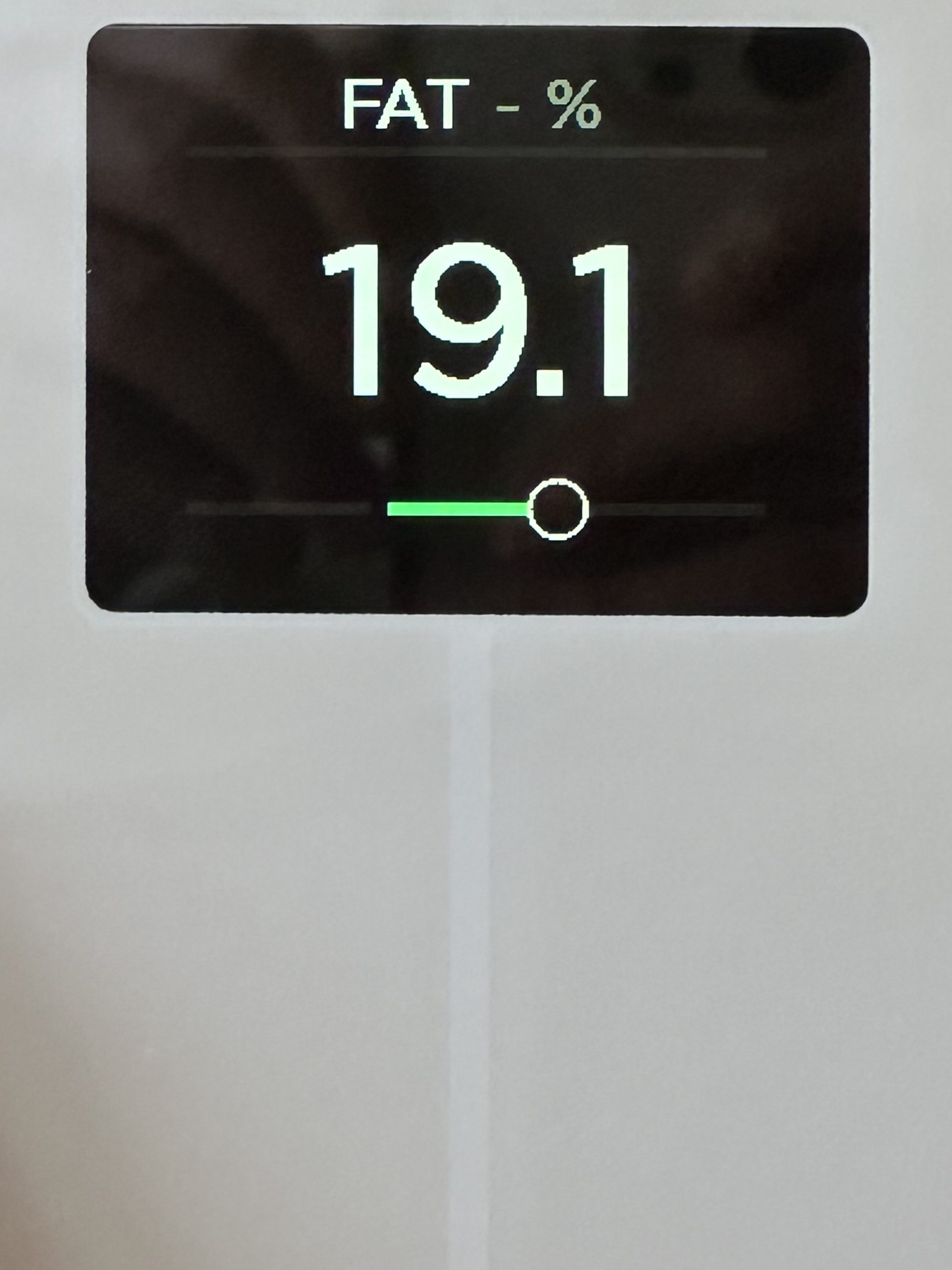
Although it is quite disappointing that the Pulse Wave Velocity (which is used to calculate your Vascular Age) and Electrodermal Assessments are only available in Europe (Heart rate measurements are luckily functional anywhere), I’ll quickly explain what these features are meant to do.
Pulse wave velocity (Vascular Health)
- Pulse wave velocity, according to the Withings Website, “measures the time difference between blood ejection from the heart to the aorta and the arrival of blood flow in the feet.”
- “The time it takes for the pressure wave to travel along the arterial tree is used in an exclusive algorithm developed with cardiologists to compute your Vascular Age and compare it with other Withings Body Comp users.”
- Vascular Age is a health metric that provides a measurement of your arteries’ age compared to other Withings users of the same chronological age.
- If your Vascular Age is significantly greater than your chronological age, you may be more at risk of developing vascular disease later in life.
Nerve Health Score
- Peripheral neuropathy is a condition often caused by diabetes where the peripheral nerves (which transmit information between the brain + spinal cord and the rest of the body) are damaged. This can lead to symptoms like tingling, numbness, weakness, and pain, and typically start in the hands and feet.
- The Nerve Health Score “measures and assesses the activity of the sweat glands in the soles of your feet and helps detect and follow-up peripheral neuropathies. Sweat gland activity is measured by stimulating the nerves that control the sweat glands in your feet and seeing how they respond.” More details of how this works can be found on the Withings Website.
- This score ranges from 0-100 and is divided into “normal” (>50) or “low” (<50). A low score can indicate possible signs of neuropathy.
Pregnancy Mode
- Pregnancy Mode allows pregnant people to track their pregnancy on their scale in addition to weekly in-app progress updates. In this mode, the scale monitors weekly weight gain and provides comparisons to average gains for similar-weight users (activating this mode suspends impedance-based features for the duration of the pregnancy).
- Notifications in the Withings App also offer creative size references for the baby, comparing them to fruits or vegetables, along with informative descriptions about the baby’s potential length and developmental characteristics for that stage (Note: although this may be obvious, these references should never substitute attending antenatal screenings with a healthcare provider for accurate information on the baby’s growth and development).
- More comprehensive information can be found on the Withings Article on the Pregnancy Mode.
Withings Body Comp Review Conclusion
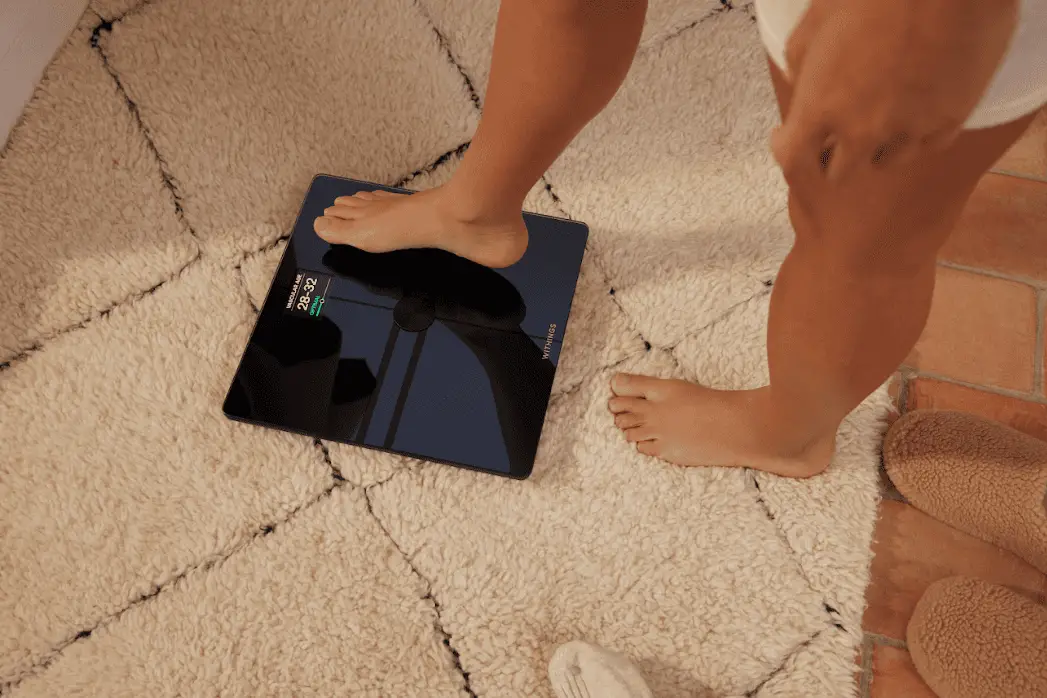
In summary, Withings Body Comp smart scale stands out with the extensive assessment capabilities. It offers comprehensive assessments, including full body composition, cardiovascular assessment, and nerve health assessments (pending TGA approval in Australia, but is already available in Europe). Priced at $359.99 AUD, it caters to those seeking advanced health metrics.
Since the cardiovascular and nerve health assessments in the Body Comp are very exciting features, their current unavailability outside the EU means that I cannot wholeheartedly recommend them over the Body Smart, especially for Australian customers. However, if it is currently on sale and you are happy to wait for the two advanced features to come in later, definitely feel free to grab the Body Comp over the Body Smart.
Furthermore, I truly hope that the weight reliability, user synchronisation, and mode unavailability issues I’ve mentioned before can be resolved, and once they are, I can more confidently recommend both these smart scales (depending on your needs) for a comprehensive health monitoring experience. If you are thinking to be easier on the budget. the Body Smart is really good too so stay tuned for our review on this one soon.
Disclosure: Withings Body Comp review sample was supplied for reviewing
Overall
Summary
Withings Body Comp is a comprehensive smart scale with advanced health metrics, including full body composition and cardiovascular assessments
Pros
- Full body composition analysis, weight, BMI, body fat, lean mass, water weight, bone mass, Visceral fat index monitoring
- Cardiovascular and Nerve Health Assessments (limited to Europe, pending TGA approval)
- Heart rate monitoring
- Fast Syncing with Withings App
- Carpet feet allow accurate readings even on carpet
- Pregnancy mode for weight tracking during pregnancy
Cons
- Setup can be challenging
- Cardiovascular and Nerve Health Assessments not available outside of the EU at the moment
- I had user misrecognition and weight inaccuracy occur during my testing
- Can be a bit pricey

